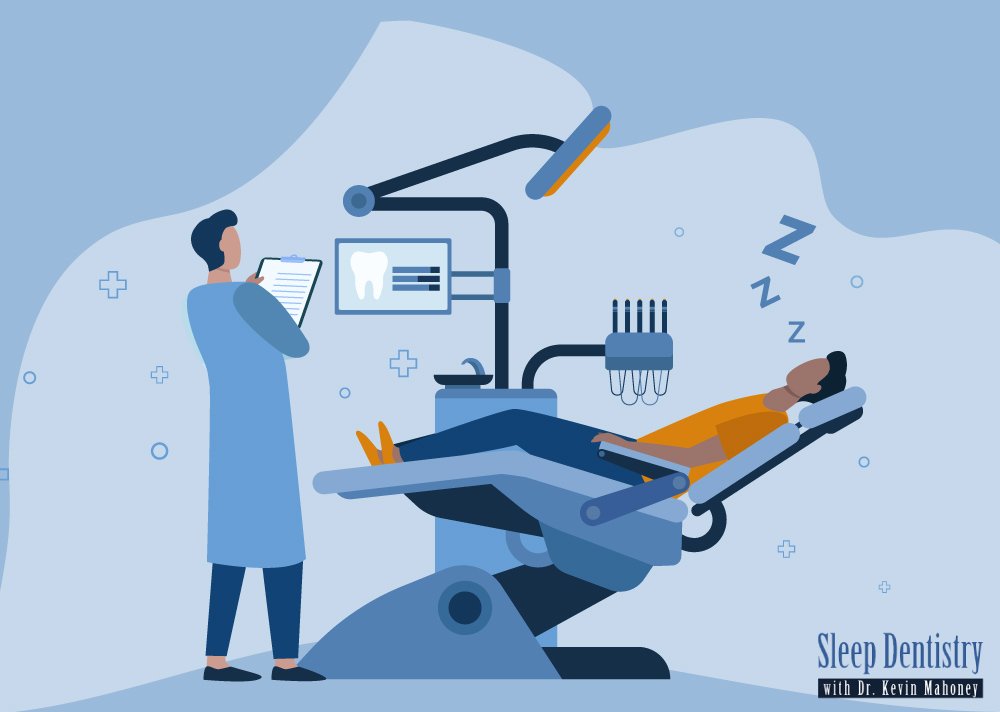“Can I be put to sleep for dental work?” If you suffer from a dental anxiety or phobia, you’ve probably wondered this more than once. The thought of being awake while your dentist pokes around your mouth with metal picks is enough to unnerve anyone, so it’s only natural to want to be unconscious for it.
That’s where sleep dentistry comes in. During sleep dentistry, patients are placed under general anesthesia while their dentist performs the necessary procedure. Not only does this allow the patient to sleep through the process pain-free, it allows the dentist to perform multiple procedures in one session, saving time.
For those with dental anxieties or phobias, sleep dentistry is a perfect solution. But now that you know you can be put to sleep, your next question may be this: “What actually happens during dental general anesthesia?”
How is Dental General Anesthesia Applied?
Dental general anesthesia is applied through one of two methods: in liquid form through an IV drip, or in gaseous form through a face mask. It can’t be administered by a standard dentist; it must be administered by a licensed dental anesthesiologist. After you lose consciousness, the anesthesiologist will monitor your breathing and other vital signs during the procedure and administer additional anesthesia as needed. This is to make sure the patient stays under.
The amount of time patients remain unconscious varies depending on the amount of work they require. The average timeframe is between 1-6 hours.
What Equipment is Used During Sleep Dentistry?
The exact equipment used during general anesthesia dentistry will vary depending on the practice and the method of sedation used. A liquid form will involve an IV line, while a gaseous form will use a face mask, a gas canister, and a machine to pump the anesthetic. There’s also life-support equipment used to monitor the patient’s vitals during the procedure, such as breathing tubes and heart rate monitors. Lastly, there’s any equipment the dentist uses for the dental work itself: suction tubes, hoses, air compressors, cleaning tools, and whatever else is necessary for the procedure they’re performing.
Is General Anesthesia Safe for Dental Work?
Like many medical practices, dental general anesthesia is safe as long as it's performed correctly. Certain factors, such as high blood pressure, obesity, or other conditions, may put you at a higher risk of anesthesia-related complications. In rare cases, a patient may experience an allergic reaction to the anesthetic. Your anesthesiologist will conduct a health assessment before your surgery to learn about pre-existing health conditions, medications, and health habits. They will also monitor you during the procedure to make sure you aren’t experiencing complications.
Experience Sleep Dentistry with Dr. Kevin Mahoney
If you’re experiencing a dental anxiety or phobia and want to schedule a sleep dentistry appointment, schedule with Dr. Kevin Mahoney at sleep dentistry. As the only board-certified dental anesthesiologist in Erie, he’ll make sure that you enjoy a painless, fear-free procedure. Contact Sleep Dentistry and schedule your appointment today.

